We Need More Christian Fiction
I know we at Spec Faith have made a plea for Christian fiction (as opposed to simply fiction by Christians) before, but I want to voice my concerns again.
One school of thought is that Christians simply need to write well and God will be glorified and the job of the author is done. Another school of thought is that the gospel needs to be declared in every story, and an example of someone repenting and changing is most desirable.
The problem is that the world seems to be winning the story-telling battle. How many books and movies and manga and drama contain the prevailing concepts of a godless worldview? Well, perhaps not godless. Many replace God with a man-centric view. We simply need to look within. The power is in us. We can do all things.
There is an increase of books about transgender issues and challenging authority, about terrorism and domestic violence. We see stories that suggest intentional fraud in religion and others that promote a pantheistic worldview. The one thing we don’t see is a story with a positive Christian role model or someone who believes the Bible. More often than not a religious person is depicted as phony or greedy or not that serious about his beliefs.
Speculative fiction might lead the way in showing this march toward life lived without thought of God. Stories largely reflect the values of society, and the violence, the sexual perversion, the preoccupation with pleasure, the absence of an emphasis on integrity are symptoms of what fuels real life.
So, I wonder, how can a Christian write well in this environment?
I don’t think writing a “beautiful” story is enough. The most obvious reason is that a story isn’t actually beautiful unless it deals with a large truth, a universal need. So we may think some stories are wonderful because they have a great plot and such engaging characters, but if they don’t also address something vital to the human condition, they fall short.
At the same time, stories that offer the gospel message, while truthful and absolutely accurate, may fall on deaf ears simply because readers can’t relate.
Over and over critics of Christian fiction remind us that stories are different from sermons, and they are. That doesn’t mean that stories should be silent about the most important things in life. Rather, stories are vital because they involve a reader’s emotions. In addition, stories can say in fresh ways what readers may have missed in more didactic formats.
Why is Christian story-telling fighting to find a place in the market?
I love many books by Christians, and a short glimpse at the Spec Faith library will show you that there’s no lack of titles available. I’ve edited some of these authors, I’ve reviewed a number of the books, I’ve read far more for pure enjoyment. But none of the recent sci-fi or fantasy titles are reaching “across the aisle” to the general market. Oh, sure, some might in small numbers, but I don’t see anything like the Left Behind phenomenon or the way The Shake captured readers.
I don’t know why Christian fiction can’t regularly be read widely, not because it’s theology is controversial, but because it’s just that compelling that readers talk about it and recommend it and get excited about it.
Some of the best books I’ve read come up short in some significant way: I’ve read some with characters that are forgettable; I’ve read others with convoluted plots; I’ve also read some that seem little more than frivolous; and yes, I’ve read some that are preachy.
What this boils down to, I think, is writers focusing on some aspects of fiction, but not on all parts. So you have some stories that have wonderful characters, but the action is episodic and doesn’t lead to a climactic conclusion. You can read a chapter, put the book down, even stop reading all together, because nothing is driving you to know what happens next.
Other books are action packed, and I find myself staying up late at night because I just can’t put the book down. But when I’m finished, I feel a little like “so what?” I don’t see how the protagonist made a distinct change or made his world better.
Above all, in some stories, I have to wonder in what ways they differ from what a non-Christian might have written.
I may not have said this before, but I think writing Christian fiction is one of the hardest things there is to do. How do we write well and remain faithful to the gospel message? How do entertain, and communicate the life-changing truth?
Half the battle is believing that Christian fiction should do more than “create art for art’s sake.” I don’t see that position in Scripture. Rather, I think a more accurate statement for the Christian is that we are to create art for God’s sake.
What that looks like in the end won’t be the same for any two books, not if done well. There simply is no formula. But if we Christians don’t use fiction to further the kingdom of God, we are cutting off one important communication tool.
I know that’s controversial. Just recently I heard another pastor on the radio disparaging “the arts” as a means of communicating the gospel. Certainly stories don’t replace sermons, but they can accomplish something sermons cannot, including reaching people who will not visit a church.
Of course, they won’t accomplish anything unless writers try.

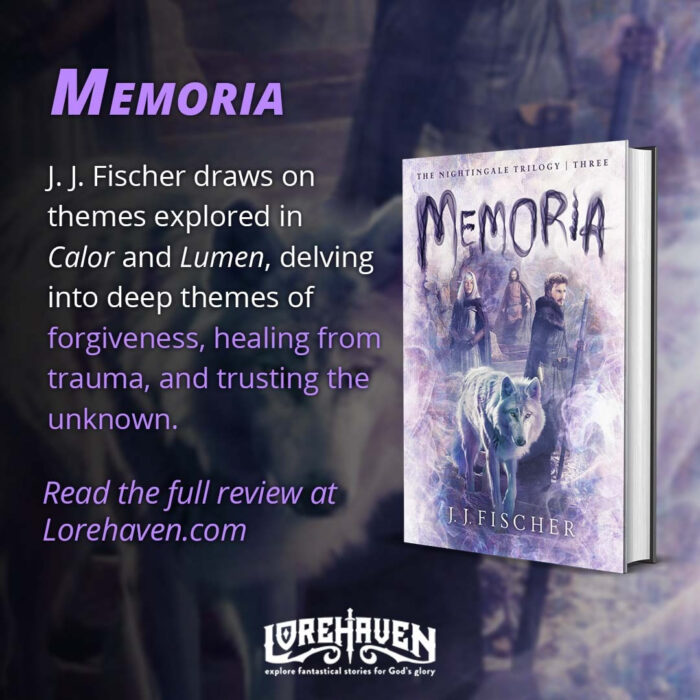
































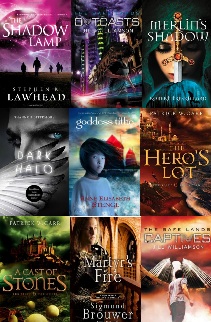






 about the bodies of Christians that were neatly buried centuries ago. They are literally dust now. There is no symbolic significance of going into the grave whole so that one may come out of it in the same way. In 1 Cor. 15:50, Paul states that these frail mortal shells cannot inhabit the Kingdom of God. There is no need to worry about what state they are in because they are going to be totally done away with in the end.
about the bodies of Christians that were neatly buried centuries ago. They are literally dust now. There is no symbolic significance of going into the grave whole so that one may come out of it in the same way. In 1 Cor. 15:50, Paul states that these frail mortal shells cannot inhabit the Kingdom of God. There is no need to worry about what state they are in because they are going to be totally done away with in the end.



 I’ll be contacting her privately about her prize. I honestly thought any of our four finalist might win, they were that good. And the close voting bears that out. So congratulations to the other three finalists for their excellent entries: Esther Brooksmith, J. L. Rowan, and M. A. Zeller.
I’ll be contacting her privately about her prize. I honestly thought any of our four finalist might win, they were that good. And the close voting bears that out. So congratulations to the other three finalists for their excellent entries: Esther Brooksmith, J. L. Rowan, and M. A. Zeller.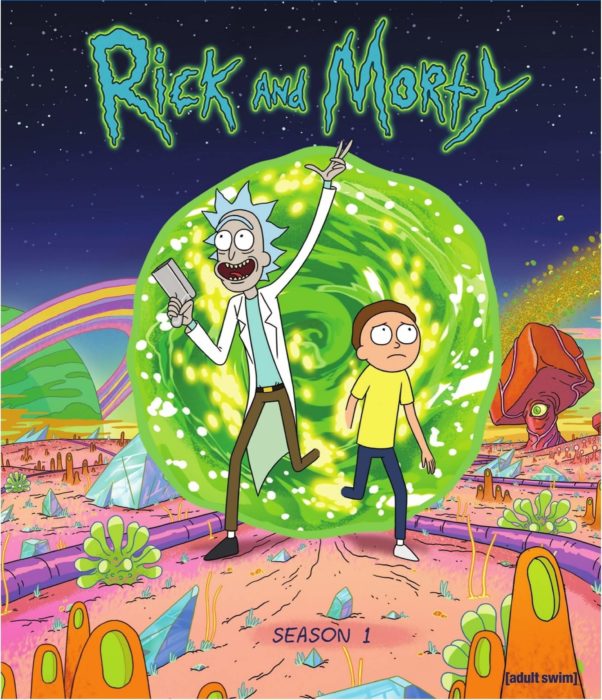
 This idea cannot be any clearer seen than in the episode entitled, ‚ÄúRixty Minutes‚ÄĚ.¬† In this particular episode, the entire gang, compliments of Rick‚Äôs brilliance, are able to watch Interdimensional TV ‚Äď basically, viewing television programming across different realities. To illustrate, in one reality, corn evolved into sentience. So, for instance, they‚Äôre watching a police procedural with corn people.
This idea cannot be any clearer seen than in the episode entitled, ‚ÄúRixty Minutes‚ÄĚ.¬† In this particular episode, the entire gang, compliments of Rick‚Äôs brilliance, are able to watch Interdimensional TV ‚Äď basically, viewing television programming across different realities. To illustrate, in one reality, corn evolved into sentience. So, for instance, they‚Äôre watching a police procedural with corn people. But, the oxymoron of the show is this: if nothing we care about matters, if we‚Äôre not to answer the unanswerable questions of life, if we‚Äôre only mere accidents, why did Rick kill King Jellybean? So what if his fourteen year old grandson was about to be raped? Who cares? Oftentimes throughout the show, Rick dismisses Morty‚Äôs concerns but in this regard, Rick responded by killing King Jellybean. Later on, in the post credit scene (which happens every episode) a couple of villagers discover pictures in King Jellybean‚Äôs house implying he molested other children. They decide to burn the pictures and leave his image, a stone statute of a smiling King Jellybean with a child by his side, and not let the other villagers know of his true nature.
But, the oxymoron of the show is this: if nothing we care about matters, if we’re not to answer the unanswerable questions of life, if we’re only mere accidents, why did Rick kill King Jellybean? So what if his fourteen year old grandson was about to be raped? Who cares? Oftentimes throughout the show, Rick dismisses Morty’s concerns but in this regard, Rick responded by killing King Jellybean. Later on, in the post credit scene (which happens every episode) a couple of villagers discover pictures in King Jellybean’s house implying he molested other children. They decide to burn the pictures and leave his image, a stone statute of a smiling King Jellybean with a child by his side, and not let the other villagers know of his true nature.

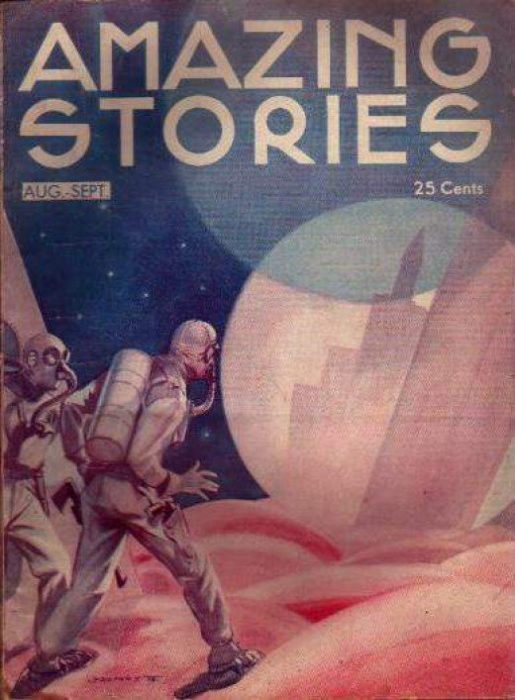
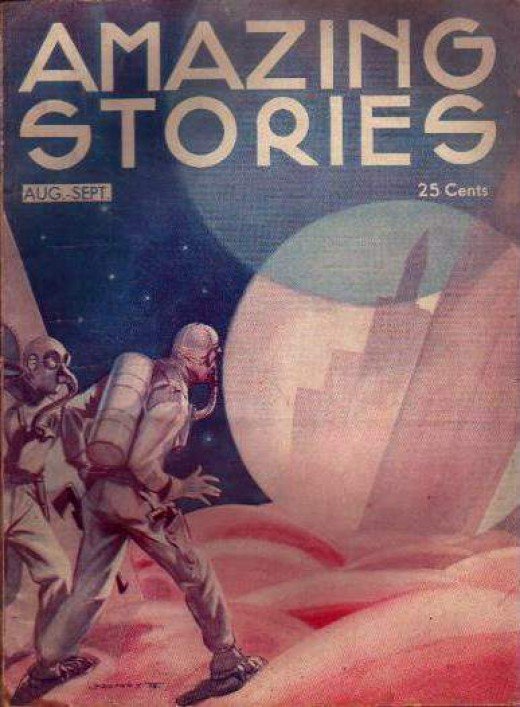 footing in pulp magazines, making their appeal to niche markets.
footing in pulp magazines, making their appeal to niche markets.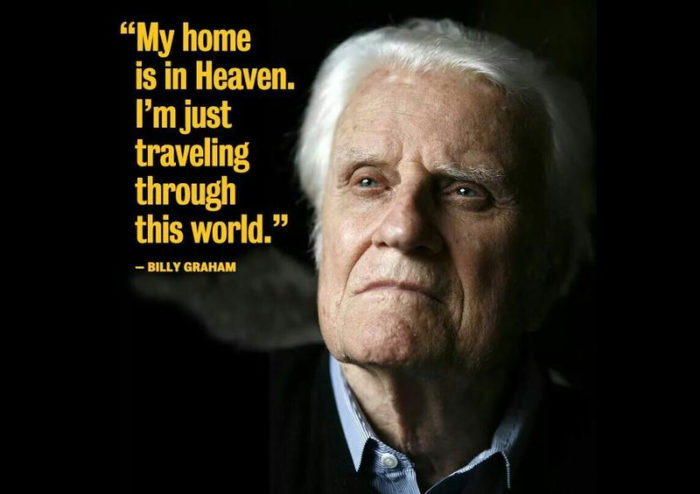

 Or when he said, ‚ÄúThis world is not our home; our citizenship is in heaven‚ÄĚ?
Or when he said, ‚ÄúThis world is not our home; our citizenship is in heaven‚ÄĚ?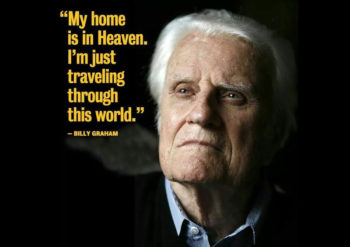
 Time to announce our finalists! Just a reminder. This is NOT a popularity contest. We really do want to acknowledge writers who have honed their skills and demonstrated their ability in this little exercise. So, those who vote in the poll, please be sure you read all the finalist entries and give a fair assessment.
Time to announce our finalists! Just a reminder. This is NOT a popularity contest. We really do want to acknowledge writers who have honed their skills and demonstrated their ability in this little exercise. So, those who vote in the poll, please be sure you read all the finalist entries and give a fair assessment.


